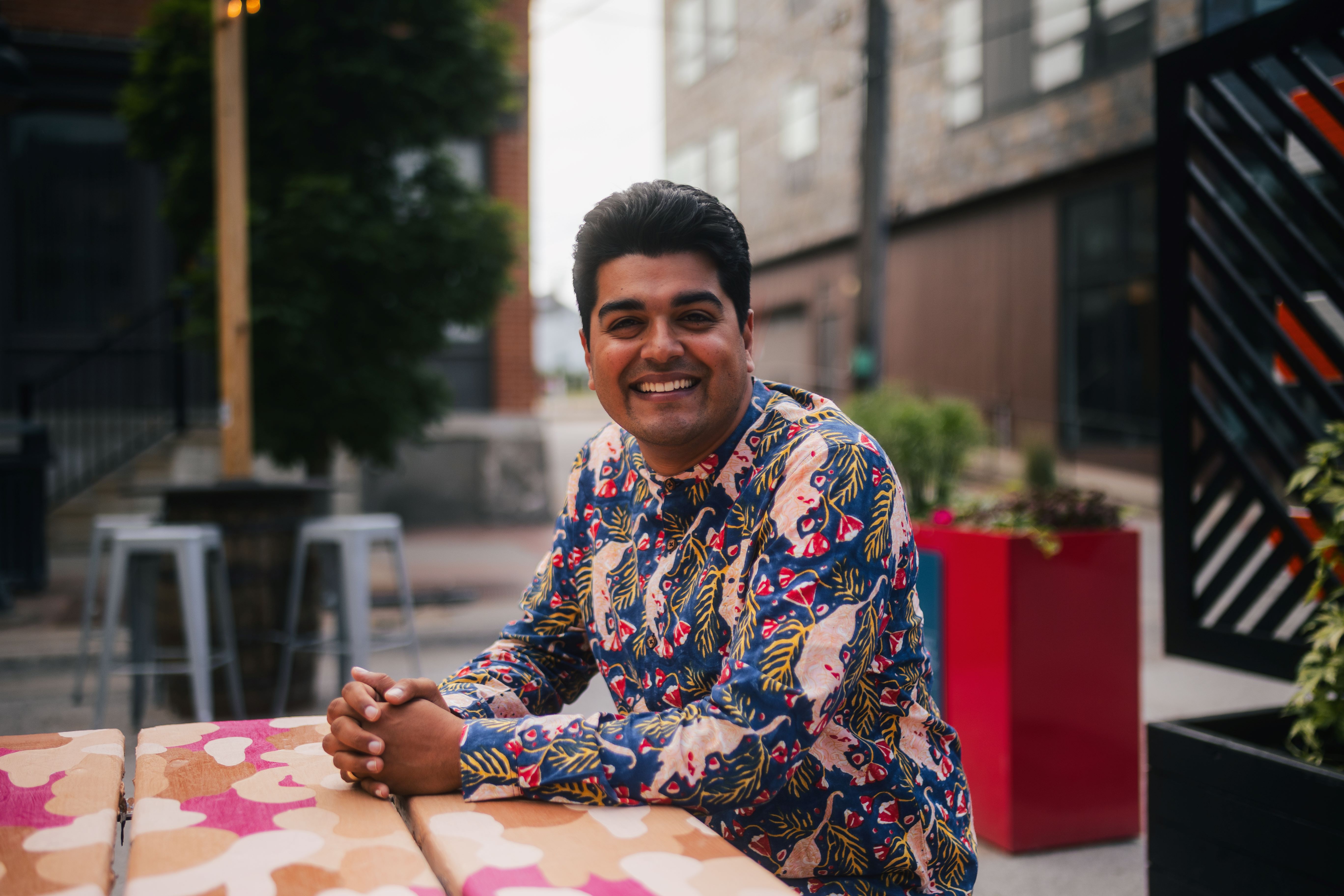Andrew Boge

Assistant Professor, Communication
Education
Ph.D., , University of Iowa
Research Expertise
Digital Media
Ethnic Studies
Public Address
Race and Ethnicity
Rhetoric
Social Justice
Transnational Studies
Dr. Andrew Parayil Boge is an Assistant Professor of Rhetoric, Media, & Culture in the Department of Communication at the University of Maryland, College Park. He received his PhD from the University of Iowa, with graduate certificates in the Public Digital Humanities and African American Studies. His interdisciplinary scholarship examines how racial ideologies are produced, maintained, and disrupted in public discourse. Informed by scholars of color in digital media and rhetorical studies, and intersectional race and ethnic studies, his work reckons with the real, situated violence of racism and the agential force of racialized peoples to disrupt such violence via discursive worldbuilding. Dr. Parayil Boge’s primary research project examines South Asian American racialization by theorizing the cultural and transnational logics of (anti-)brownness across racial projects. His scholarship can be found in Rhetoric and Public Affairs, Ethnic Studies Review, and Rhetoric Review.
Dr. Parayil Boge’s first book project, tentatively titled Brown Peril, unearths the transnational, imperial, and relational forces that shape the emergence of anti-brownness as a powerful form of racism in U.S. public culture. Through archival study, he utilizes racial rhetorical criticism to analyze three discursive registers (newspapers, legal rhetoric, popular films) to reveal how South Asian migrants became understood as a menacing racial horde, a particular peril for the white working class, and danger to white femineity and heteropatriarchy through the language of brownness. Brown Peril traces the emergence of anti-Brown rhetoric to early twentieth-century public discourse that operated as a rubric of racemaking to calibrate South Asians in relation to blackness, whiteness, Asianness, and Indigeneity.
Other research projects include work on Brown conservatism and South Asian American support for Christo-Racist Nationalism in U.S. politics, how contemporary Asian American food brands rhetorically rework conceptions of authenticity through innovative digital strategies to disrupt racist logics within food media, and a critique of the rhetoric of white fragility.
In the classroom, Dr. Parayil Boge is committed to cultivating educational spaces fundamentally informed by the principles of anti-racist and social justice pedagogy. He teaches courses on race/racism, media, rhetoric, and ethnic studies. Through a liberal arts approach to teaching and course development, Dr. Parayil Boge encourages students to reflect upon the taken-for-granted assumptions that define their experience, cultivating a healthy skepticism of public arguments, discourses, images, and ideas. He strives to equip students with the metacognitive tools necessary to advocate for themselves and others in pursuit of a more just world.
Outside of teaching and research, Andrew works to refine his skills as an amateur South Indian cook and aspiring chaiwala.
Publications
Temporal Tampering and “The Case for Reparations”
Analysis of Ta-Nehisi Coates's article “The Case for Reparations” published in Rhetoric and Public Affairs
Author/Lead: Andrew BogeThis essay examines Ta-Nehisi Coates's article “The Case for Reparations” to illuminate how he uses inventive temporal strategies to transform the grounds of the reparations debate. I argue, Coates engages in a process of temporal tampering that involves meddling with dominant temporal structures (conceptions of time that serve white supremacy) to accommodate the excessiveness of anti-Black violence. Through tactics of timeline jumping and a rhetoric of repair, Coates draws on articulations of time as a resource to sabotage anti-reparations temporalities. Instead of approaching the reparations debate through stale discursive entry points, such as financial logistics, I reveal how Coates draws upon conceptions of time to reposition reparations as a mode of worldbuilding and social transformation.
Read More about Temporal Tampering and “The Case for Reparations”

